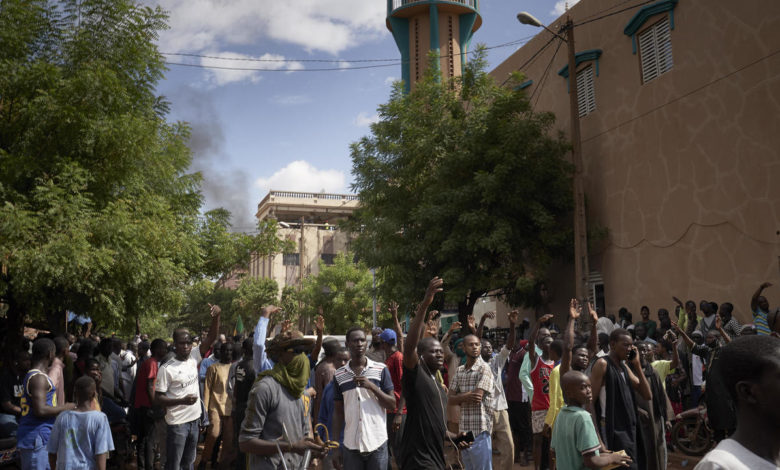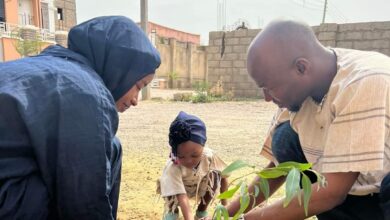Mali Opposition Declares Truce As Regional Leaders Prepare For Negotiations

Mali’s political opposition says it will halt protests in a “truce” ahead of the upcoming Eid festival as four West African presidents prepare to travel to the country on Thursday for mediation talks to try and end the crisis in the country.
President Ibrahim Boubacar Keita has been locked in a standoff for weeks with the opposition June 5 Movement, and the conflict spiralled into violent clashes earlier this month, leaving nearly a dozen people dead.
Opposition figures have been tapping into a wellspring of anger over the president’s perceived failures in tackling the poor economy, corruption and an eight-year jihadist war.
The leaders of Ivory Coast, Ghana, Senegal and Niger will fly to the capital Bamako for talks on Thursday regarding the impasse, according to a Malian presidency official.
Nouhoun Sarr, one of the protest movement leaders, told AFP on Monday night that the opposition had “decided to observe a truce on the subject of civil disobedience. This is to allow Malians to properly prepare for and celebrate Eid.”
“During this period, there will be no more demonstrations. And as you also know, we are preparing to host the heads of state,” he said.
The Muslim Eid al-Adha festival of animal sacrifice will begin at the end of the month and lasts for several days.
Issa Kaou Djim, another protest movement figure, said the truce was a “very responsible and wise decision”.
But the opposition did not soften its demands and issued a statement on Monday evening restating its call for the resignation of Keita and his regime.
HumAngle gathered that Thursday’s talks is a follow-up on the heels of a mediation mission from the West Africa bloc ECOWAS, which ended on Sunday without achieving its mandate of brokering peace betwee the president and the opposition.
Among other grievances, many Malians are incensed at the outcome of long-delayed parliamentary elections in March and April that handed victory to Keita’s party.
But the current crisis came to a head on July 10 after an anti-Keita rally organised by the June 5 Movement turned violent.
Protesters blocked key bridges in Bamako, stormed the premises of the state broadcaster and attacked the parliament.
Three days of clashes between protesters and security forces followed, leaving 11 dead and 158 injured, according to an official tally, in the worst political unrest Mali has seen in years.
The ECOWAS mission suggested the formation of a new unity government, including opposition members as well as the appointment of new judges to the Constitutional Court who could potentially re-examine disputed election results.
The June 5 Movement had earlier stated that it would reject any outcome that did not include Keita’s departure, a demand opposition leaders have insisted on for weeks.
The movement is a disparate alliance of political, social and civil society leaders gathered around powerful imam Mahmoud Dicko, who is seen as its de facto leader, although he is not a formal member.
Mali’s neighbours and international allies are anxious to avoid a slide into chaos in the poor Sahel nation of some 20 million people.
The former French colony has been struggling to contain a jihadist insurgency that first emerged in the north in 2012 before spreading to the centre of the country.
Thousands of soldiers and civilians have died in the conflict and hundreds of thousands of people have been driven from their homes.
Keita, who came to power in 2013, has been under increasing pressure to stop the fighting.
But much of the current tension in Mali was sparked in April, when the Constitutional Court tossed out 31 results from the parliamentary elections, sparking protests.
ECOWAS mediators had also said that they would set up a technical committee to oversee their recommendations, suggesting that talks between the warring parties might continue.
Dicko met the French, U.S. and European Union ambassadors on Monday and told them that the way the country was being run must radically change, according to participants in the meeting.
Support Our Journalism
There are millions of ordinary people affected by conflict in Africa whose stories are missing in the mainstream media. HumAngle is determined to tell those challenging and under-reported stories, hoping that the people impacted by these conflicts will find the safety and security they deserve.
To ensure that we continue to provide public service coverage, we have a small favour to ask you. We want you to be part of our journalistic endeavour by contributing a token to us.
Your donation will further promote a robust, free, and independent media.
Donate Here




